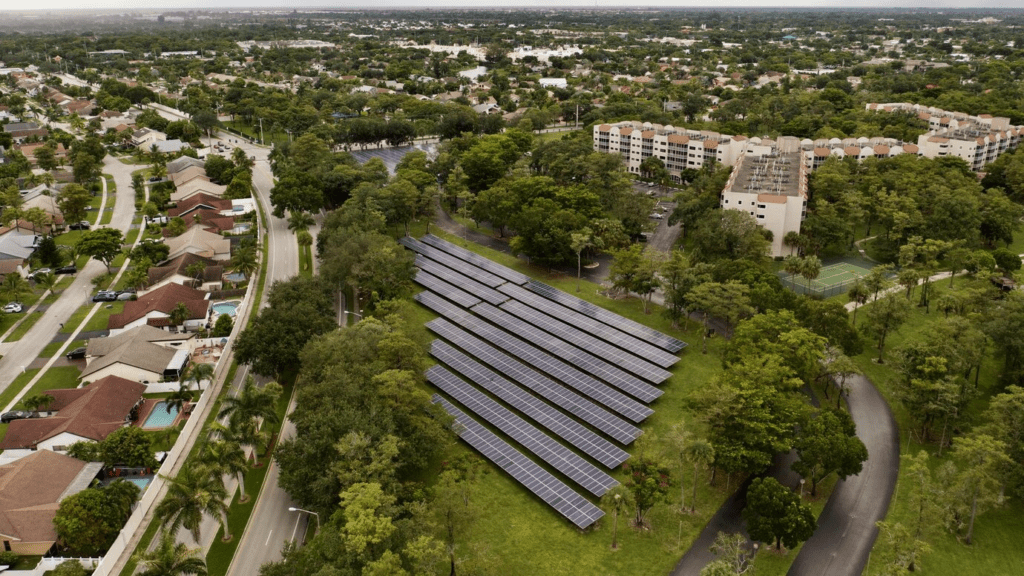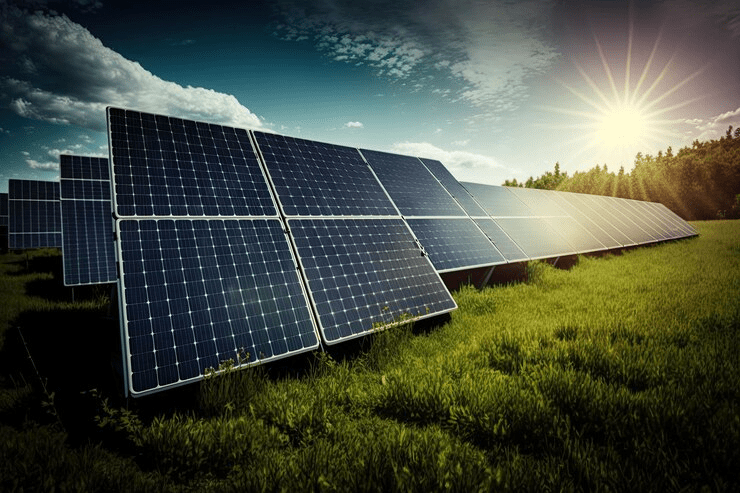Lower your electricity bills
Energy Bonds Solutions has helped thousands of renters, homeowners, and businesses benefit from state community solar programs.

Community solar is supported by local and national organizations
An energy discount program that rewards you for helping the planet
Get subscribed to a solar farm in your community
It sends clean power to the electric grid
Receive a discount off your utility bill
No panels? No problem—you can still save with shared solar
Uber
Airbnb
Energy Blends Solution

Get Started With Energy Blends In Minutes
-
Check if there's a solar farm in your area
-
Provide your utility account information or upload an image of your bill
-
Add a preferred payment method
-
Start saving and feel good about helping the planet

FAQ
Community solar projects managed by Perch typically offer subscribers between 5%-10% savings! Those currently on government assistance programs may be eligible for even higher savings, including up to 20%. Community solar is meant to provide savings over time; your exact monthly breakdown of savings will vary due to the seasonality of solar power generation. Savings are dictated in part by your state’s legislation, the project you’re subscribed to, and your own monthly electricity usage. When we match you to a solar farm, you’ll know what your expected savings rate is.
We analyze your historical electricity usage to understand how many credits you’ll need each month from your solar farm. States typically allow for higher electricity users to get a larger “share” of the farm’s energy output, bringing them additional savings, since their bills are higher from the start. But low electricity users can still save! Perch needs to see your historical usage before we can assign you to a solar farm.
We analyze your historical electricity usage to understand how many credits you’ll need each month from your solar farm. States typically allow for higher electricity users to get a larger “share” of the farm’s energy output, bringing them additional savings, since their bills are higher from the start. But low electricity users can still save! Perch needs to see your historical usage before we can assign you to a solar farm.
Rooftop solar is, of course, installed directly on one’s roof. If you’re a renter, a homeowner, or business owner without a suitable roof, or you just don’t want to spend the money, rooftop solar may not be right for you. Rooftop solar is a big financial decision, often costing upwards of $15,000 or more (ConsumerAffairs). It’s a long-term investment and estimates suggest it takes anywhere between 8-15 years or more to pay off the upfront cost (EcoWatch), though there are many factors that could shorten or prolong that. The benefit is that you can dramatically reduce your electricity bills, or even sell excess energy back to the utility. But for many years, those savings are just going toward offsetting the installation cost. Community solar is free to get started, it doesn’t require a rooftop or home ownership, has no cost to cancel, and it brings consistent, incremental savings to you!
No. While solar development is growing rapidly nationwide, right now there are still just a small fraction of community solar farms compared to what we expect in the coming years. And once a farm’s subscription spots fill up, it can no longer take on new subscribers. So if there’s a solar farm in your area—lucky you!

If you pay an electricity bill, you can sign up!
5%-10% savings
Renters, homeowners & businesses
Free to join with $0 cancellation fee
Community solar's benefits go beyond your bill
Helps create local jobs
More solar projects being built in your state means more quality jobs for workers.
Fights global warming by reducing CO2 emissions
Community solar farms can power thousands of homes and businesses without releasing CO2 into the atmosphere.
Lessens our reliance on fossil fuels
Solar projects pump clean energy onto the overall electric grid, helping lessen our dependence over time on fossil fuel power.
Lowers pollution in the air, on land, and in our drinking water
Our environment will thrive as more solar farms lead to the decommissioning of traditional power plants that are highly pollutive.
Promotes energy equity and environmental justice
Zoning laws have sometimes allowed for the development of hazardous power plants in disadvantaged or low-income communities. Solar farms, in turn, are planet-friendly and people-friendly.
Solar "agrivoltaics" can support American farmers
Some solar projects Perch manages use agrivoltaics, when panels are installed on existing agricultural farmland. Farmers lease their land and gain an additional revenue source to help sustain their operations.

